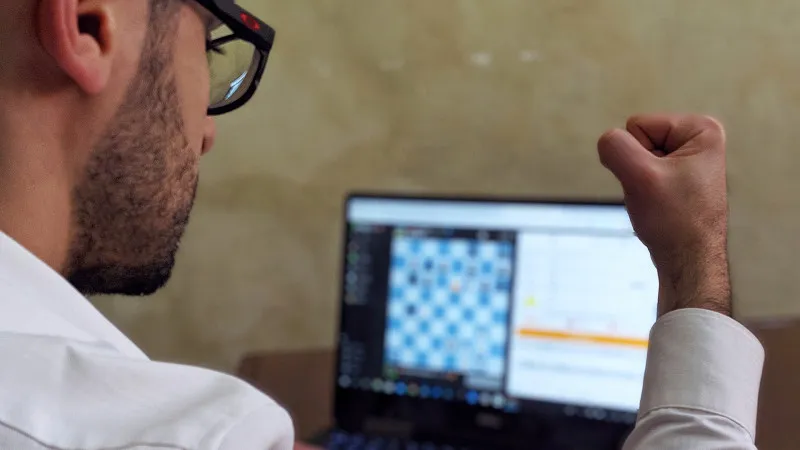Golden Method to Increase Online Rating in Chess
Anyone can use this stupidly simple but highly effective method to raise their online rating.
Anyone can use this stupidly simple but highly effective method to raise their online rating.

Within the recent six months, 4 of my students, who intensively play online chess, have increased by 1000 points taken in sum.
How did this happen? There are a few specific reasons. In this article, we’ll speak about a method called 9 games.
Almost every online chess player plays a random amount of games. Sometimes they stop playing after a few games, and sometimes they play 50 games non-stop.
Let’s discuss why and what adjustments you can make in this method. In the end, I’ll share my golden tip with you.
When you know how many games you are going to play before starting the session, it helps you to concentrate and play with your full strength. You know it’s going to be just 9 games. In lost positions, you don’t simply resign and click “New Game”. You fight till the end!
If you lose the first two games in a real tournament, you don’t withdraw from it, do you? I hope you don’t. The same is here – when you lose the first two games of your session, you don’t stop playing. It’s good training for you on how to pull yourself together after painful defeats and achieve better results.
Most of the tournaments consist of 9 rounds. When you play 9 games during each session, you train yourself to automatically get into the right mindset during the tournament.
If your country's tournaments consist of 7 rounds only, that’s fine. You can adjust your sessions and play 7 games.
What if instead of 3+0 games you play 30+0? No problem. Play 2-4 games. Keep your sessions 1-2 hours. If you play 15+0 games, play 4-8 games.
The most important thing is to know how many games you are going to play before you start the session. Getting prepared for a specific amount of games, you code your mind to use your abilities in a more optimized and effective way.
You kind of say: “Hey man, we are going to play an X amount of games, pull yourself together and let’s play good games, my friend.”
Yeah, your mind is your friend, speak with it.
If you have more time and want to play more, that’s fine. Just make a minimum 15 minutes break before you start a new session.
Imagine in your mind that each session is a tournament and show full dedication. You need to help your mind understand that it’s important and ask it to fully concentrate.
This one is my favorite. If you know anything about neuroscience, you will easily understand why it works.
Here is what you do. You reward yourself!
When you gain 7.5 points out of 9 you do an X thing. Let’s say, you want to lose weight but at the same time, you love ice-cream. You can make a deal with yourself – “Whenever I get 7.5 points out of 9, I’ll go to my favorite ice-cream shop.”
If you are a parent and you dream of being a father of a Grandmaster, you can say to him: “My son, whenever you get 7.5 points out of 9, I’ll buy you an X thing.”
Whatever we do in our life, we do it either to get pleasure or to avoid pain. This is how our mind works, this is why we do things. And that’s why rewarding ourselves works so well. Try it. You’ll definitely see the difference.
Before starting each session, close your eyes for 2 minutes and concentrate. Think about whatever motivates you and try your best to concentrate.
Try this method of 9 games, with minimum 15 minutes breaks between each session, and without withdrawing from the session. Unless there is someone screaming that she is pregnant. Okay guys, just kidding 😁
On this happy note, with a smile on your face, go and try the “9 games” method. And don’t forget to post your stories in our forum.
I’m sure you’ll be amazed when you put this method into practice, and hopefully, you’ll share it with other chess players!
Originally published Mar 10, 2020

